“Any change, even a change for the better, is always accompanied by drawbacks and discomforts.” This is a popular quote that describes the pivotal role of Change. Change is the very obvious rule of life. Some accept it, some deny and for some, they don’t want to change. Is it really that they don’t want to change or it’s just a clearer version of who they really are? Or maybe, they are deprived of seeing what that is which it to be changed..! Here are some reasons why people don’t want to change.
You don’t want to change.
Maybe you think you want to change something. But is it really your wish? Or is it the wish of your parents, boss, partner, friends or society? Many a times, you are instigated by the society and people surrounding you for not having a relevant change. But don’t leverage that. Introspect yourself and check if you really need to change. However this doesn’t mean that you have to make a nonsense commitment to yourself. It’s a process that begins with being aware. This may seem obvious, but it’s not. Self-awareness without judgment, similar to an anthropologist observing behavior in an attempt to understand it, is the first step.
You don’t feel courageous enough.
Change freaks us out—probably even more than public speaking, but it’s the sort of amorphous issue that we don’t think about because it manifests itself subtly in so many ways. You may feel like you need some courage to make those changes you want, to take those first steps. There is no way of getting around that. And I won’t lie to you. Sometimes it will suck. When you do things you don’t just build confidence in your ability to handle different situations. You also experience progressive desensitization. But once, you build that courage, practice change, things will be simplified and work on your will. Eventually you don’t really need that much courage after a while.
Your environment is holding you back.
Change comes in many forms in our daily lives. Everyone experiences the pains of being young through puberty and later the pains of being old through inevitable medical issues. One common problem with the social environment is that you perhaps fear what people may think if you make change. You really want to change, but environment doesn’t allow. You are obstructed by the pulling factors. For instance, your psychological habits. People continue to engage in patterns of behavior- jealousy, dependency, nagging, anger, etc. Give yourself permission to freak out on your own time and then find ways to move forward positively.
You feel like giving up after one or three failures
When you are really young, you probably don’t build failure up to be this huge thing. You learn to walk, fall down and ding your head and get up again. The same goes for learning to ride your bike. But then, when it comes to difficult things, from society and school, it can be way frightening. Most of the time the sky will not fall if you fail. People will not mock you. Life just goes on, as I mentioned above while writing about courage. But you have to do things to gain this understanding. Your mind has to experience failure – or the possibility of it – over and over to make the fear of failure to lot smaller. That has at least been my experience.
You don’t know how to practically make the change.
Coping with change isn’t that hard. You can’t change how your brain works, but you can use its quirks to your advantage. At an unconscious level, you know you want to change, but you don’t know how to do it practically. Change is indeed more work. Those closest to the change in terms of designing and testing it are often overloaded, in part because of the inevitable unanticipated glitches in the middle of change. But most of us, we fail to practice it. For this, talk to people who have made the change you want to make (lose weight, quit smoking, improve the social life etc.) Find a way that suits you.
After enough regular practice, managing change won’t feel like such a fearful burden. Diagnosing the sources of resistance is the first step toward good solutions. Even moderate change can reap meaningful benefits. And here’s the best news of all. Change that moves in a positive direction will not only expand your confidence, it can enrich your relationships, enhance your career, and empower your well-being.
-Tanvi Shah


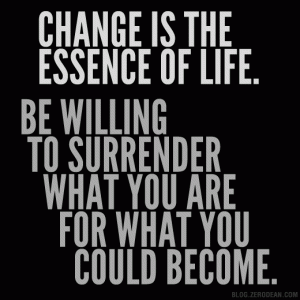
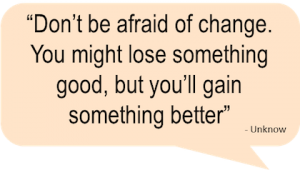
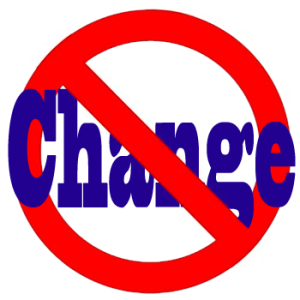
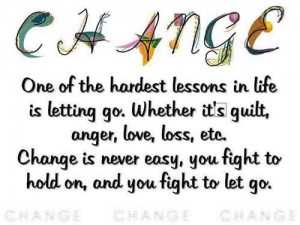
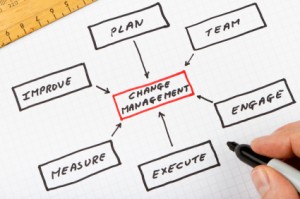

3 Comments